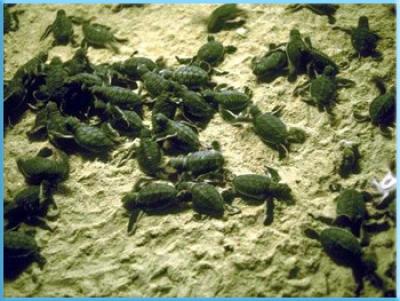Sea Turtle Nesting Season
Sea turtle nesting season lasts from April 15 to October 31.
Although nearly 90 percent of sea turtle nesting in the U.S. occurs in Florida, over the last decade nesting rates in the state have dropped more than 40 percent for the loggerhead turtle. From April through October these creatures will return to their home beaches to lay eggs. Marathon’s coastal residents and beach visitors can help sea turtles during the nesting season by keeping beaches clean, being aware of nesting sites and reducing artificial lighting near beaches that can distract and confuse mothers and hatchlings and lead to their death.
The following is some additional information about sea turtles.
- The hatchlings emerging from the nest are loggerhead turtles, which are a threatened species.
- Nesting season in the Keys is May 1 – October 31.
- Hatchlings typically do not emerge during daylight hours, instead of taking advantage of the protection from predators that nighttime provides.
- Hatchlings emerging from the nest are capable of climbing out of the sand on their own and do not require assistance. Please do not dig into sea turtle nests – this could be considered a violation of state and federal laws!
- Hatchlings that are making their way to the ocean on their own are best left to do so on their own. Please do not interrupt their crawl unless they are crawling away from the ocean.
- How they can help – leave only footprints on the beach (pick up after yourself & others), manage light on their property (including docks) to make sure hatchlings & nesting females aren’t led astray, recycle their fishing line, fill in holes, bring in beach furniture at night, support local turtle conservation groups, etc.
- Provide contact info – who should they contact if they see a sea turtle crawl? A sick/injured sea turtle (FWC @ 888-404-FWCC (3922) or *FWC on a mobile phone)? What if they want to volunteer/get involved?
- Explain the weed – folks from other areas won’t know what this is or why it is there and may think that this is out in the ocean rather than on the beach. Great opportunity to explain the importance of weed to the beach ecosystem.
- Include the language “All marine turtle footage taken in Florida was obtained with the approval of the U.S. Fish and Wildlife Service and the Florida Fish and Wildlife Conservation Commission (FWC) under conditions not harmful to this or other turtles while conducting activities authorized under FWC MTP-14-079.”


